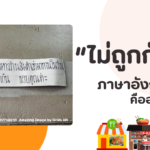| 聞く | - (きく) (v5k,vt) (1) to hear; (2) (usu. 聴く) to listen (e.g. to music); (3) (formal 聴く) to ask; to enquire; to query; (P) [EDICT]
|
| て | - () (conj) (col) (See と言うか) or rather (say); or better (say); or perhaps I should say; or, how should I put it,...; I mean [EDICT]
- () (prt) a sort of thing like; used after a phrase to modify the following noun [EDICT]
- () (prt) (1) (also でも, っても) even if; even though; (int) (2) (abbr) (See さても) wow [EDICT]
- (手) (n) (1) (occ. pronounced た when a prefix) (See お手・おて・1) hand; arm; (2) (col) (See お手・おて・3) forepaw; foreleg; (3) handle; (4) hand; worker; help; (5) trouble; care; effort; (6) means; way; trick; move; technique; workmanship; (7) hand; handwriting; (8) kind; type; sort; (9) (See 手に入る) one's hands; one's possession; (10) (See 手に余る) ability to cope; (11) hand (of cards); (12) (See 山の手・1) direction; (P) [EDICT]
|
| もし | - (若し) ถ้า..., สมมติว่า... [LongdoJP]
- (若し) (adv) (uk) if; in case; supposing; (P) [EDICT]
- (模試) (n) (abbr) (See 模擬試験) mock examination; trial examination [EDICT]
|
| 然るべき | - (しかるべき) (adj-pn) (uk) proper; appropriate; due; suitable [EDICT]
|
| で | - () (aux) (abbr) (arch) (See である) to be [EDICT]
- () (n) (sl) detective [EDICT]
- () (aux) (pol) (See だ・1) polite copula in Japanese; (P) [EDICT]
- () (conj,int) (See それでは) then; well; so; well then; (P) [EDICT]
- () (conj) (1) but; however; though; nevertheless; still; yet; even so; (prt) (2) even; (3) however; no matter how; even if; even though; (4) ... or something; (5) (as 〜でも〜でも) either ... or ...; neither ... nor ...; (pref) (6) (before an occupation, etc.) pseudo-; quack; in-name-only; (7) (before an occupation, etc.) (See でもしか) for lack of anything better to do; (P) [EDICT]
- (出) (n,n-suf) (1) coming out; going out; outflow; efflux; rising (of the sun or moon); (2) attending (work); appearing (on stage); one's turn to go on; (3) start; beginning; (4) origins; background; person (or item) originating from ...; graduate of ...; native of ...; member of ... (lineage); (5) architectural member that projects outward; (6) highest point of the stern of a ship; (7) (uk) (usu. after the -masu stem of a verb as 〜出がある or 〜出がない, etc.) amount (comprising something); amount of time or effort required to do something; (P) [EDICT]
|
| 誰 | - (だれ) ใคร [LongdoJP]
- (だれ(P);たれ(ok);た(ok)) (pn,adj-no) who; (P) [EDICT]
- (shéi, ㄕㄟˊ) who; also pronounced shui2 [CE-DICT]
- (Shuí, ㄕㄨㄟˊ) variant pronunciation of shei2, who; surname Shui [CE-DICT]
|
| か | - () (n) cawing (of a crow) [EDICT]
- () (prt) (fam) marks yes-no question; (P) [EDICT]
- () (prt) (1) (ksb [EDICT]
- () (prt) interrogative sentence-ending particle expressing doubt; (P) [EDICT]
- () (prt) (abbr) (See かもしれない) may; might; perhaps; may be; possibly [EDICT]
- () (prt) (See か,よ) sentence-ending particle expressing doubt [EDICT]
- () (prt) (1) from (e.g. time, place, numerical quantity); since; (2) from (originator); (3) because; (4) out of (constituent, part); (5) through (e.g. window, vestibule); (6) after; since (following te-form verb); (P) [EDICT]
- (下) (suf) under (being in said condition or environment) [EDICT]
- (化) (suf) (See 化する) action of making something; -ification [EDICT]
- (佳) (adj-na,n) beautiful; good; excellent [EDICT]
- (加) (n) (1) addition; increase; (2) (abbr) (See 加奈陀) Canada; (P) [EDICT]
- (可) (n,n-suf) passable; acceptable; tolerable; fair; (P) [EDICT]
- (夏) (n) Xia (dynasty of China; perhaps mythological) [EDICT]
- (家) (suf) (See 政治家) -ist (used after a noun indicating someone's occupation, pursuits, disposition, etc.); -er [EDICT]
- (科) (n,n-suf) (1) department; section; (2) (taxonomical) family; (P) [EDICT]
- (果) (n) (1) {Buddh} (See 因・2) phala (attained state, result); (2) {Buddh} (See 悟り・2) enlightenment (as the fruits of one's Buddhist practice); (3) (See 果物) fruit; (ctr) (4) counter for pieces of fruit [EDICT]
- (架) (n) unit of equipment; rack [EDICT]
- (火) (n) (1) (abbr) (See 火曜) Tuesday; (2) (See 五行・1) fire (second of the five elements) [EDICT]
- (荷) (suf,ctr) counter for loads (that can be carried on one's shoulders) [EDICT]
- (菓) (n) (1) (arch) fruit; (suf,ctr) (2) counter for fruit [EDICT]
- (課) (n,n-suf) (1) lesson; (2) section (in an organization); division; department; (ctr) (3) counter for lessons and chapters (of a book); (P) [EDICT]
- (過) (pref) (1) surplus- (attaches to start of Sino-Japanese words); excess-; over-; (2) per- (chemical with more of a certain element than found in other compounds of the same constituents) [EDICT]
- (蚊) (n) mosquito; (P) [EDICT]
- (香) (n) smell (esp. a good smell); fragrance; scent; aroma; perfume [EDICT]
- (日) (n-suf) (1) day of month; (ctr) (2) counter for days [EDICT]
- (戈) (n) ge (ancient Chinese dagger-axe) [EDICT]
- (顆) (n) (1) condyle; (ctr) (2) (arch) counter for grains and small spheres [EDICT]
|
| と | - () (prt,conj) among other things; such things as; or something like that; (P) [EDICT]
- () (n) regular (stops at every station) Jouetsu-line Shinkansen [EDICT]
- () (prt) (1) even; (2) even if; even though; (3) because of; on the grounds that [EDICT]
- () (prt) indicates word or phrase being defined; (P) [EDICT]
- () (n) (sl) last (in a contest) [EDICT]
- () (prt) (1) certainly; of course; to be sure; surely; (2) even if; no matter (who, what, when, where, why, how); though; although; (3) (with neg. verb) without even; without so much as; (4) (after an adverb) (See 遅くとも) at the (least, earliest, etc.); (5) (sometimes esp. an emphatic form of the particle と) (See と・1,と・2,と・3,と・4) emphatic particle; (P) [EDICT]
- () (v5r) (equiv. of -ている indicating continuing action as a verb ending; poss. contraction of -て ending + おる auxiliary verb) is being [EDICT]
- () (n) fatty, more expensive tuna meat; (P) [EDICT]
- () (adv-to,adv) (on-mim) tap; knock; bonk [EDICT]
- (戸) (n) (1) (戸 only) (See 扉) door (esp. Japanese-style); (2) (arch) entrance (to a home); (3) (arch) narrows; (P) [EDICT]
- (門) (n) (1) (戸 only) (See 扉) door (esp. Japanese-style); (2) (arch) entrance (to a home); (3) (arch) narrows; (P) [EDICT]
- (人) (suf) person [EDICT]
- (徒) (n) party; set; gang [EDICT]
- (斗) (n) (1) (obs) to (measure of volume, approx. 18 litres); (2) (See 枡形) square bearing block (at the top of a pillar); (3) (See 二十八宿) Chinese "Dipper" constellation (one of the 28 mansions); (P) [EDICT]
- (途) (n) way; (P) [EDICT]
- (都) (n,adj-no) metropolitan; municipal [EDICT]
|
| 出会う | - (であう) (v5u,vi) (1) (出遭う usu. has a negative connotation) to meet (by chance); to come across; to run across; to encounter; to happen upon; (2) (出会う, 出合う only) (esp. 出合う) to meet (e.g. of rivers, highways, etc.); (3) (出会う, 出合う only) (often used imperatively as 出会え) to emerge and engage (an enemy); (P) [EDICT]
|
| ば | - () (n,adj-no) (1) (See ばつが悪い) one's circumstances or condition, esp. compared to that of another; (2) coherence (e.g. of a conversation) [EDICT]
- () (n) shit; bullshit [EDICT]
- () (suf,v5m) (See 黄ばむ,汗ばむ) to be ...y (suffix indicating that something is in the state of the preceding noun, etc.) [EDICT]
- () (n) burr (e.g. on a machined edge) [EDICT]
- (場) (n) (1) place; spot; space; (2) field; discipline; sphere; realm; (3) (See その場) occasion; situation; (4) scene (of a play, movie, etc.); (5) session (of the stock market); (6) area in which cards are laid out (in a card game); (7) {physics} field; (8) field (gestalt psychology); (P) [EDICT]
|
| その | - (其の) (adj-pn) (1) (uk) (See 何の・どの,此の,其れ・1,彼の) that (something or someone distant from the speaker, close to the listener; actions of the listener, or ideas expressed or understood by the listener); the; (int) (2) um...; er...; uh...; (P) [EDICT]
|
| 人 | - (じん) (suf) (1) -ian (e.g. Italian, etc.) (attaches to name of country to denote nationality); -er (e.g. performer, etc.) (attaches to name of occupation); (2) (usu. in compound words) man; person; people; (P) [EDICT]
- (と) (suf) person [EDICT]
- (にん(P);たり;り) (ctr) (1) counter for people; (n) (2) (にん only) (usu. in compound words) person; (P) [EDICT]
- (ひと) (n) (1) man; person; (2) human being; mankind; people; (3) character; personality; (4) man of talent; true man; (5) other people; (6) adult; (P) [EDICT]
- (rén, ㄖㄣˊ) man; person; people [CE-DICT]
|
| を | - () (prt) (arch) (See を) marks object of action, etc. (also adds emphasis) [EDICT]
|
| すごい | - (凄い) เจ๋ง, สุดยอด, ว้าว! [LongdoJP]
- (凄い) น่ากลัว, น่าสะพรึงกลัว [LongdoJP]
- (凄い) (adj-i) (1) (uk) terrible; dreadful; (2) amazing (e.g. of strength); great (e.g. of skills); wonderful; terrific; (3) to a great extent; vast (in numbers); (P) [EDICT]
|
| 好き | - (すき) ชอบ [LongdoJP]
- (すき) (adj-na,n) liking; fondness; love; (P) [EDICT]
- (ずき) (adj-na,adj-no,suf) (1) -phil; -phile; enthusiast (for); love (of); (2) being attractive (to); to tend to be liked (by) [EDICT]
|
| に | - (二) สอง [LongdoJP]
- () (prt) indicates location of action (formal literary form of "de"); at; in; (P) [EDICT]
- () (prt) (See に,は) for (in regard to); in order to [EDICT]
- () (exp) also; too; not ... either; as well; even [EDICT]
- () (exp) (1) (also にゃあ) (See ねば) if not ... (negative conditional); (2) (See には) for (in regard to); in order to [EDICT]
- (荷) (n) (1) load; baggage; cargo; freight; goods; (2) burden; responsibility; (P) [EDICT]
- (似) (suf) takes after (his mother) [EDICT]
- (丹) (n) red earth (i.e. containing cinnabar or minium); vermilion; (P) [EDICT]
- (土) (n) (arch) soil (esp. reddish soil) [EDICT]
- (尼) (n,n-suf) (abbr) (See 比丘尼) bhikkhuni (fully ordained Buddhist nun) [EDICT]
- (弐) (num) two (used in legal documents) [EDICT]
|
| なる | - (成る) (v5r,vi) (1) (uk) to become; to get; to grow; to be; to reach; to attain; (2) to result in; to prove to be; (3) to consist of; to be composed of; (4) to succeed; to be complete; (5) to change into; to be exchanged for; (6) (See 成り済ます) to play a role; (7) to be promoted (shogi); (v5r) (8) (hon) (as お+masu-stem+になる, ご+noun+になる, etc.) to do ...; (P) [EDICT]
- (為る) (v5r,vi) (1) (uk) to become; to get; to grow; to be; to reach; to attain; (2) to result in; to prove to be; (3) to consist of; to be composed of; (4) to succeed; to be complete; (5) to change into; to be exchanged for; (6) (See 成り済ます) to play a role; (7) to be promoted (shogi); (v5r) (8) (hon) (as お+masu-stem+になる, ご+noun+になる, etc.) to do ...; (P) [EDICT]
- (生る) (v5r,vi) (uk) to bear fruit; (P) [EDICT]
- (鳴る) (v5r,vi) to sound; to ring; to resound; to echo; to roar; to rumble; (P) [EDICT]
|
| かも | - (鴨) (n) (1) (uk) duck; (2) easy mark; sucker; sitting duck; (P) [EDICT]
- (鳧) (n) (1) (uk) duck; (2) easy mark; sucker; sitting duck; (P) [EDICT]
|
| しれる | - (知れる) (v1,vi) to become known; to come to light; to be discovered; (P) [EDICT]
|
| ない | - () (exp) (1) (See ませんか) (used to ask a question in the negative) won't (hasn't, isn't, doesn't, etc.); (2) (used to make invitations, express desires or give indirect commands) won't you [EDICT]
- () (conj,aux) (1) (See ない) without doing ...; (aux) (2) used in sentence-final position as an indirect prohibition [EDICT]
- (内) (suf) inside; within [EDICT]
- (亡い) (adj-i) (See 無い) dead [EDICT]
- (無い) (adj-i) (1) (uk) (See 亡い) nonexistent; not being (there); (2) unpossessed; unowned; not had; (3) (See またとない) unique; (4) (as ...ことがない, etc.) indicates negation, inexperience, unnecessariness or impossibility; (aux-adj) (5) (See ない) (after the ren'youkei form of an adjective) not ...; (6) (after the -te form of a verb) to not be...; to have not ...; (P) [EDICT]
|
| けど | - () (conj,prt) but; however; although; (P) [EDICT]
|
| 今 | - (いま) (n-adv,n) now; the present time; just now; soon; immediately; (one) more; (P) [EDICT]
- (こん) (pref) (1) the current ...; this; (2) today's ... [EDICT]
- (jīn, ㄐㄧㄣ) today; modern; present; current; this; now [CE-DICT]
|
| は | - (葉) ใบไม้ [LongdoJP]
- () (int) (1) (pol) yes; (2) OK (used to get attention prior to an utterance); okay; (3) giddy-up; giddap; (P) [EDICT]
- () (v5r,aux-v,suf) (hon) (ksb [EDICT]
- () (suf) (ksb [EDICT]
- (歯) (n) tooth; (P) [EDICT]
- (刃) (n) edge (of a knife or sword); (P) [EDICT]
- (派) (n,n-suf) clique; faction; school; (P) [EDICT]
- (破) (n) (See 序破急) (in gagaku or noh) middle section of a song [EDICT]
- (葉) (n) leaf; (P) [EDICT]
|
| 全く | - (まったく) (adv) (1) really; truly; entirely; completely; wholly; perfectly; (2) indeed; (int) (3) (abbr) (See 全くもう) good grief (expression of exasperation); (P) [EDICT]
|
| 意味 | - (いみ) ความหมาย [LongdoJP]
- (いみ) (n,vs) meaning; significance; (P) [EDICT]
- (yì wèi, ㄧˋ ㄨㄟˋ) significance; imply (that) [CE-DICT]
|
| わ | - (我) ฉัน ข้าพเจ้า กู ข้า [LongdoJP]
- () (int) (1) wow! (surprise); (2) yeah!; alright! (joy); (3) waah! (crying) [EDICT]
- () (prt) (See わ) (sentence end, mainly male) indicates emotion [EDICT]
- () (exp) (fem) (See わ,ね・1) expresses depth of feeling or emphasis (sentence end) [EDICT]
- () (exp) (See わやく) fiasco; debacle; disaster; train wreck [EDICT]
- () (n) (1) (ワン only) one; (2) (on-mim) (See ワンワン・1) woof; bark; (P) [EDICT]
- (輪) (n) (1) ring; circle; loop; (2) (See フープ) hoop; (3) wheel; (4) circle (e.g. of friends); (P) [EDICT]
- (環) (n) (1) ring; circle; loop; (2) (See フープ) hoop; (3) wheel; (4) circle (e.g. of friends); (P) [EDICT]
- (和) (n) (1) sum; (2) harmony; peace; (pref) (3) Japanese-style; (P) [EDICT]
- (話) (ctr) counter for stories, episodes of TV series, etc. [EDICT]
|
| 会う | - (あう) (v5u,vi) (1) (逢う is often used for close friends, etc. and may be associated with drama or pathos; 遭う may have an undesirable nuance) to meet; to encounter; (2) (uk) (esp. 遭う when in kanji) to have an accident; to have a bad experience; (P) [EDICT]
|
| も | - () (adv,int) (1) (See すでに) already; anymore; (2) soon; shortly; (3) more; further; other; again; (int,adv) (4) interjection used to strengthen expression of an emotion (often exasperation); (P) [EDICT]
- () (n) (from a reversal of くも) (See 雲・くも) cigarette; cig; smoke; fag [EDICT]
- () (int) excuse me! (when calling out to someone) [EDICT]
- () (adv) (abbr) (col) (See 勿論・もちろん) of course; for sure; definitely [EDICT]
- () (n) (abbr) {food} (See 臓物) entrails; giblets; guts; internal organs [EDICT]
- () (pref) (before a verb) (See もて囃す,もて扱う・1) emphatic prefix [EDICT]
- (裳) (n) ancient skirt [EDICT]
- (喪) (n,adj-no) mourning; (P) [EDICT]
- (藻) (n) duckweed; seaweed; algae; (P) [EDICT]
|








